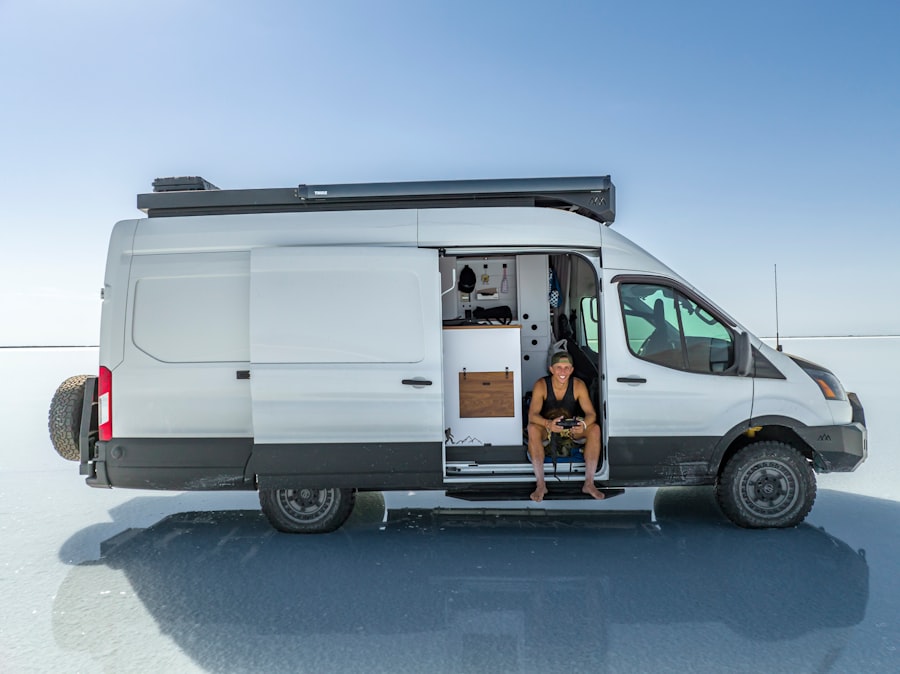Mobile home insurance is a specialized form of coverage designed to protect the unique structures and personal property found within mobile homes, also known as manufactured homes. Unlike traditional homeowners insurance, which typically covers site-built homes, mobile home insurance addresses the specific risks associated with homes that are built in factories and transported to their locations. This type of insurance is crucial for mobile homeowners, as it provides financial protection against various perils, including fire, theft, vandalism, and natural disasters.
One of the key distinctions of mobile home insurance is that it often includes coverage for the home itself, personal belongings, and liability protection. The policy can cover the structure of the mobile home, which is usually classified as personal property rather than real estate. This classification can lead to different underwriting processes and coverage options compared to traditional home insurance.
Understanding these nuances is essential for mobile homeowners to ensure they have adequate protection tailored to their specific living situation.
Key Takeaways
- Mobile home insurance provides coverage for your manufactured or mobile home, similar to traditional homeowners insurance.
- Types of coverage available include protection for the structure, personal property, liability, and additional living expenses.
- Factors affecting insurance costs include the age and condition of the mobile home, location, and the homeowner’s claims history.
- Tips for finding the right policy include comparing quotes from multiple insurers, considering the level of coverage needed, and reviewing the policy details carefully.
- Regular maintenance of your mobile home is important to prevent damage and maintain the insurability of the property.
Types of Coverage Available
Mobile home insurance typically offers several types of coverage that can be customized based on individual needs. The most common types include dwelling coverage, personal property coverage, liability coverage, and additional living expenses coverage. Dwelling coverage protects the physical structure of the mobile home against various risks, such as fire, windstorm, or hail damage.
This coverage is vital for safeguarding the investment in the home itself. Personal property coverage extends protection to the belongings inside the mobile home, including furniture, electronics, clothing, and other personal items. This aspect of coverage is particularly important for mobile homeowners who may have invested significantly in their possessions.
Liability coverage protects homeowners from legal claims arising from injuries or damages that occur on their property. For instance, if a guest slips and falls while visiting, liability coverage can help cover medical expenses and legal fees. Additionally, many policies offer additional living expenses coverage, which assists homeowners in covering costs for temporary housing if their mobile home becomes uninhabitable due to a covered loss.
Factors Affecting Insurance Costs

Several factors influence the cost of mobile home insurance premiums. One of the primary considerations is the age and condition of the mobile home. Older homes may be more susceptible to damage and may not meet current building codes, leading to higher premiums.
Conversely, newer models that incorporate modern safety features and materials may qualify for lower rates. The location of the mobile home also plays a significant role; homes situated in areas prone to natural disasters such as hurricanes or floods may incur higher insurance costs due to increased risk. Another critical factor is the level of coverage selected by the homeowner.
Policies with higher limits or additional endorsements will naturally result in higher premiums. Additionally, the homeowner’s claims history can impact rates; those with a history of frequent claims may face higher costs as insurers perceive them as higher risk. Lastly, the deductible amount chosen can also affect premiums; opting for a higher deductible typically results in lower monthly payments but increases out-of-pocket expenses in the event of a claim.
Tips for Finding the Right Policy
| Factors to Consider | Importance |
|---|---|
| Coverage Needs | High |
| Cost of Premiums | Medium |
| Policy Exclusions | High |
| Customer Service | High |
| Claim Process | High |
Finding the right mobile home insurance policy requires careful consideration and research. Homeowners should start by assessing their specific needs and determining what types of coverage are essential for their situation. It’s advisable to create an inventory of personal belongings to understand how much personal property coverage is necessary.
This inventory can also aid in determining the appropriate dwelling coverage based on the home’s value. Shopping around is crucial when seeking mobile home insurance. Homeowners should obtain quotes from multiple insurers to compare coverage options and premiums.
It’s important to read the fine print and understand what is included in each policy, as well as any exclusions or limitations that may apply. Additionally, consulting with an insurance agent who specializes in mobile home insurance can provide valuable insights and help navigate the complexities of different policies. An agent can also assist in identifying potential discounts based on factors such as bundling policies or installing safety features like smoke detectors or security systems.
Importance of Regular Maintenance
Regular maintenance is essential for mobile homeowners not only to preserve the condition of their homes but also to potentially lower insurance costs. Insurers often reward homeowners who demonstrate proactive maintenance with lower premiums or discounts. Routine inspections can help identify issues such as leaks, structural damage, or wear and tear that could lead to larger problems if left unaddressed.
Moreover, maintaining the exterior of a mobile home is crucial for protecting it from environmental hazards. For instance, ensuring that skirting is intact and that there are no gaps can prevent water damage during heavy rains or flooding. Regularly checking and maintaining roofing materials can also mitigate risks associated with wind damage or leaks.
By investing time and resources into regular upkeep, homeowners not only enhance their living environment but also strengthen their position when it comes to filing claims or negotiating with insurers.
Making a Claim: What to Expect

When it comes time to make a claim on a mobile home insurance policy, understanding the process can alleviate some stress during what may be a challenging time. The first step is to notify the insurance company as soon as possible after a loss occurs. Most insurers have specific timelines for reporting claims, so prompt communication is essential.
Homeowners should document the damage thoroughly by taking photographs and making detailed notes about what occurred. Once a claim is filed, an adjuster will typically be assigned to assess the damage and determine the extent of coverage applicable under the policy. This process may involve an inspection of the property and discussions with the homeowner regarding the circumstances surrounding the loss.
It’s important for homeowners to be prepared with any relevant documentation, such as receipts for repairs or evidence of ownership for personal property lost or damaged. After the assessment is complete, the insurer will provide a decision regarding the claim, which may include an offer for compensation based on the policy terms.
Additional Coverage Options
In addition to standard coverage options, mobile homeowners may want to consider additional endorsements or riders that can enhance their protection. One common option is flood insurance, which is crucial for those living in flood-prone areas since standard mobile home insurance policies typically do not cover flood damage. Homeowners can purchase separate flood insurance through the National Flood Insurance Program (NFIP) or private insurers.
Another valuable addition is replacement cost coverage for personal property, which ensures that homeowners receive compensation based on the current market value of their belongings rather than their depreciated value at the time of loss. This type of coverage can be particularly beneficial for those with high-value items such as electronics or jewelry. Additionally, some policies offer coverage for detached structures like sheds or carports, which can be important for homeowners who have invested in outdoor storage solutions.
Benefits of Mobile Home Insurance
The benefits of mobile home insurance extend beyond mere financial protection; they provide peace of mind for homeowners who may face unique risks associated with mobile living. One significant advantage is that it safeguards against unexpected events that could lead to substantial financial loss. Whether it’s damage from a storm or theft of personal belongings, having insurance ensures that homeowners are not left to bear these burdens alone.
Furthermore, mobile home insurance often includes liability protection that shields homeowners from potential lawsuits arising from accidents on their property. This aspect is particularly important given that many mobile homes are located in close-knit communities where interactions with neighbors are frequent. By having adequate liability coverage, homeowners can feel secure knowing they are protected against unforeseen incidents that could lead to legal action.
In summary, mobile home insurance serves as a critical safety net for those living in manufactured homes. With various types of coverage available and factors influencing costs, it’s essential for homeowners to understand their options thoroughly and choose policies that best fit their needs while ensuring regular maintenance and being prepared for potential claims processes.

